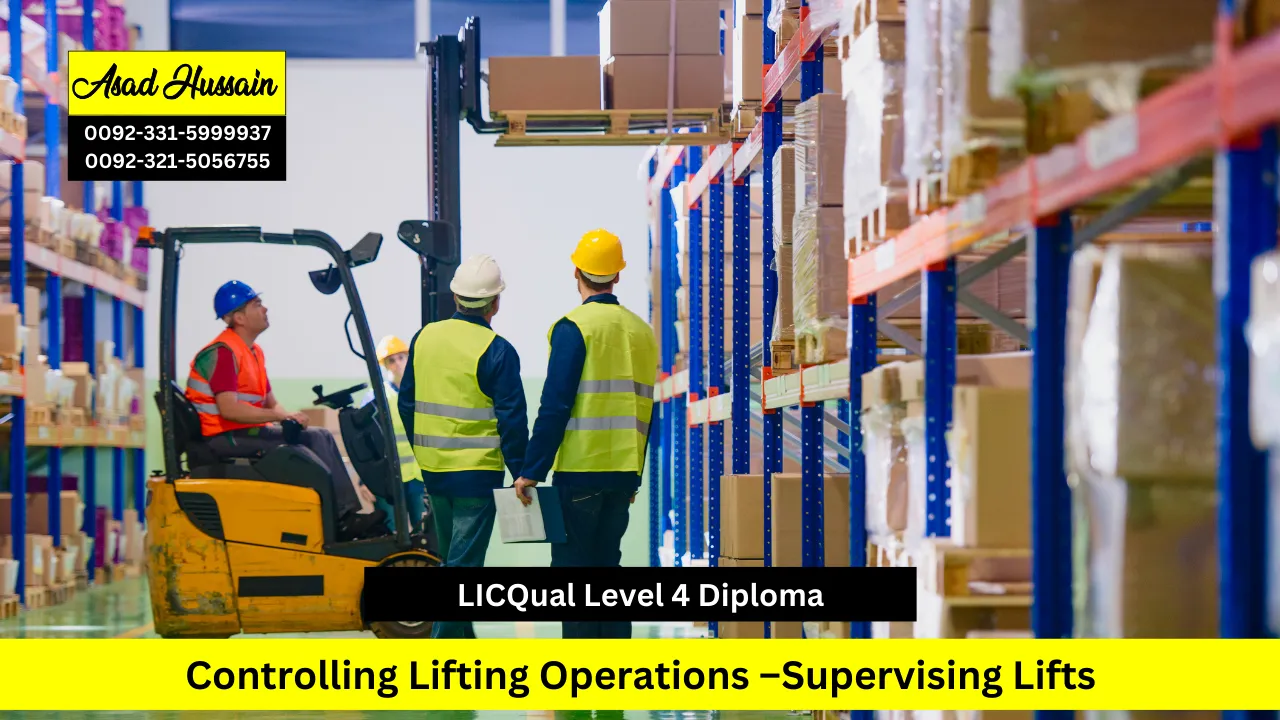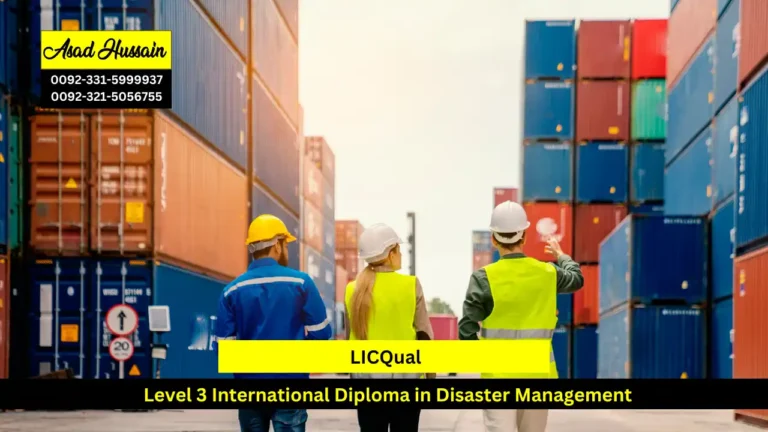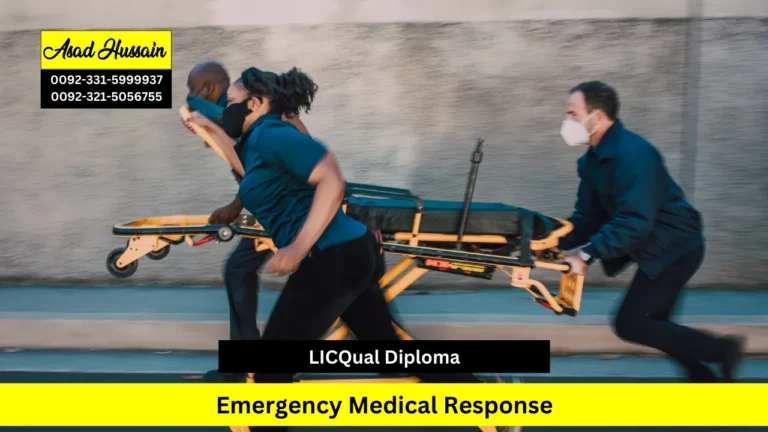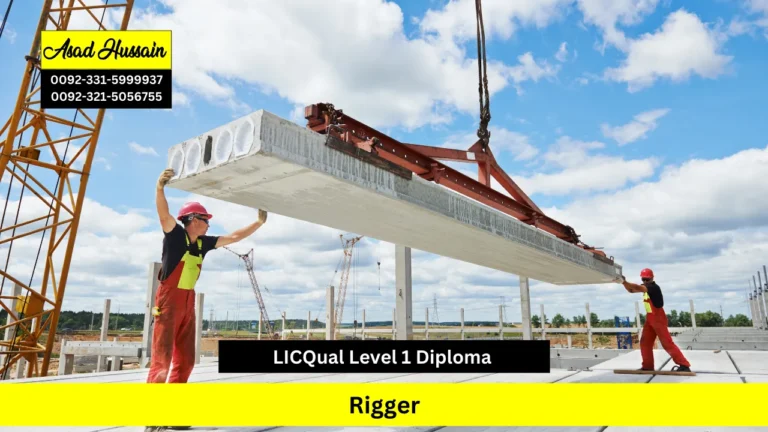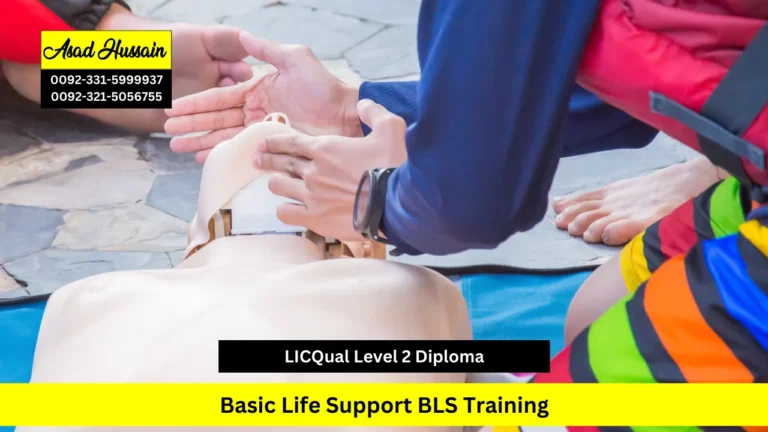The LICQual Level 4 Diploma in Controlling Lifting Operations – Supervising Lifts is a specialised qualification designed for professionals responsible for planning, managing, and supervising lifting operations across industries such as construction, oil and gas, logistics, and heavy engineering. In today’s fast-paced and high-risk environments, safe and effective lifting practices are essential to protect people, equipment, and infrastructure. This diploma equips learners with advanced knowledge and leadership skills to ensure lifting operations are carried out in compliance with international safety standards and industry best practices.
The purpose of LICQual Level 4 Diploma in Controlling Lifting Operations –Supervising Lifts is to provide supervisors with the ability to plan and control lifting operations effectively, assess potential risks, and coordinate teams during complex lifting activities. Learners will develop expertise in interpreting lifting plans, understanding load dynamics, ensuring regulatory compliance, and applying safe systems of work.
Through a balance of theoretical learning and practical application, participants will gain confidence in supervising lifts, managing communication across teams, and implementing corrective measures when required. By the end of the course, learners will be fully prepared to take responsibility for supervising lifting operations, contributing to safer workplaces and more efficient project delivery.
Completing the LICQual Level 4 Diploma in Controlling Lifting Operations – Supervising Lifts enhances career opportunities in supervisory, managerial, and safety-critical roles while providing internationally recognised professional credibility in lifting operations management.
Program Highlights
Mandatory Units
- Principles of Lifting Operations Supervision.
- Risk Assessment and Risk Management in Lifting Operations.
- Legal and Regulatory Requirements for Supervising Lifts.
- Effective Communication and Coordination in Lifting Operations.
- Equipment and Technology in Lifting Supervision.
- Incident Management and Emergency Response in Lifting Activities.
The entry requirements for the LICQual Level 4 Diploma in Controlling Lifting Operations – Supervising Lifts are designed to balance accessibility with the need for learners to have the foundation necessary to succeed in this highly technical and safety-critical programme. These requirements ensure that candidates are equipped with the appropriate background, enabling them to apply their learning effectively in real-world supervisory roles.
Age Requirements
- Learners must be at least 19 years old at the time of enrolment.
Educational Requirements
- A Level 3 qualification (or equivalent) in construction, engineering, logistics, or a related field is preferred.
- Candidates with relevant vocational training in lifting or health and safety may also be considered.
Professional Experience
- Prior work experience in lifting operations, construction, or supervisory roles is highly recommended.
- Candidates without direct supervisory experience may still apply if they can demonstrate strong knowledge of workplace safety or operational practices.
English Language Proficiency
- Learners should have sufficient English proficiency to understand technical terminology and communicate effectively in supervisory contexts.
- International learners may be asked to demonstrate language proficiency through IELTS 5.5 (or equivalent) if English is not their first language.
These entry requirements are carefully structured to maintain programme integrity while ensuring inclusivity for learners from diverse backgrounds. By meeting these requirements, learners can maximise their learning outcomes, gain confidence, and apply advanced supervisory skills effectively in the workplace.
The LICQual Level 4 Diploma in Controlling Lifting Operations –Supervising Lifts equips learners with advanced knowledge and practical skills required to plan, manage, and supervise lifting operations safely and efficiently. Through this programme, learners will gain competencies in risk management, legal compliance, communication, and emergency response, ensuring they can take responsibility for safe lifting operations in diverse industrial environments.
Principles of Lifting Operations Supervision
- Explain the key principles and responsibilities involved in supervising lifting operations.
- Apply systematic planning techniques to organise lifts safely and efficiently.
- Evaluate the role of supervision in preventing accidents and maintaining compliance with standards.
- Demonstrate the ability to implement safe systems of work for complex lifting tasks.
- Assess operational requirements and identify potential hazards before lifting activities.
Risk Assessment and Risk Management in Lifting Operations
- Conduct comprehensive risk assessments for lifting operations in different environments.
- Identify, evaluate, and prioritise hazards associated with lifting tasks.
- Implement appropriate risk control measures to minimise workplace accidents.
- Monitor and review risk management strategies to ensure ongoing effectiveness.
- Apply emergency preparedness measures to reduce operational downtime and injuries.
Legal and Regulatory Requirements for Supervising Lifts
- Understand national and international legislation related to lifting operations.
- Apply legal and regulatory requirements to ensure compliant supervision.
- Recognise the implications of non-compliance for organisations and individuals.
- Maintain accurate records to demonstrate adherence to statutory and organisational standards.
- Integrate health and safety legislation into daily lifting operations management.
Effective Communication and Coordination in Lifting Operations
- Coordinate lifting teams effectively using clear and concise communication strategies.
- Implement protocols for hand signals, radios, and briefings to enhance safety.
- Facilitate collaboration between operators, riggers, and supervisors during lifts.
- Develop leadership skills to guide teams under pressure and ensure adherence to procedures.
- Resolve conflicts and manage information flow efficiently to prevent operational delays.
Equipment and Technology in Lifting Supervision
- Identify appropriate lifting equipment and technology for various operational requirements.
- Demonstrate safe inspection, handling, and maintenance of lifting machinery.
- Apply technological tools for monitoring and managing lifting operations.
- Evaluate the suitability of lifting equipment for specific tasks and environments.
- Implement best practices for the selection, deployment, and use of lifting gear.
Incident Management and Emergency Response in Lifting Activities
- Recognise potential emergency scenarios and develop contingency plans.
- Respond effectively to incidents, including accidents or equipment failures.
- Investigate incidents to determine causes and recommend corrective measures.
- Document and report incidents in line with organisational and legal requirements.
- Apply lessons learned to improve future lifting operations and reduce risk.
Upon completion of this diploma, learners will be prepared to supervise lifting operations confidently, ensuring safety, efficiency, and regulatory compliance while enhancing workplace productivity.
The LICQual Level 4 Diploma in Controlling Lifting Operations – Supervising Lifts is tailored for professionals who are responsible for planning, coordinating, and overseeing lifting operations across a variety of industrial sectors.
Supervisors and Team Leaders
- Individuals responsible for leading lifting teams on construction, logistics, or industrial sites.
- Professionals seeking advanced skills to ensure safe and compliant lifting practices.
Health and Safety Officers
- Employees tasked with monitoring workplace safety and managing operational risks.
- Learners aiming to integrate lifting supervision within broader health and safety strategies.
Operations and Project Managers
- Professionals managing large-scale projects involving lifting operations.
- Learners seeking knowledge to oversee multiple teams and complex lifting tasks.
Equipment Operators and Riggers
- Operators involved in handling cranes, hoists, or rigging operations.
- Individuals aiming to expand their expertise in supervising lifts rather than only operating equipment.
Aspiring Safety and Lifting Professionals
- Learners entering the field of lifting operations or industrial supervision.
- Individuals committed to developing internationally recognised qualifications in lifting management.
The LICQual Level 4 Diploma in Controlling Lifting Operations – Supervising Lifts provides learners with the expertise, confidence, and professional credibility needed to manage lifting operations safely and effectively, making them highly valuable in industries where precision, safety, and compliance are critical.

